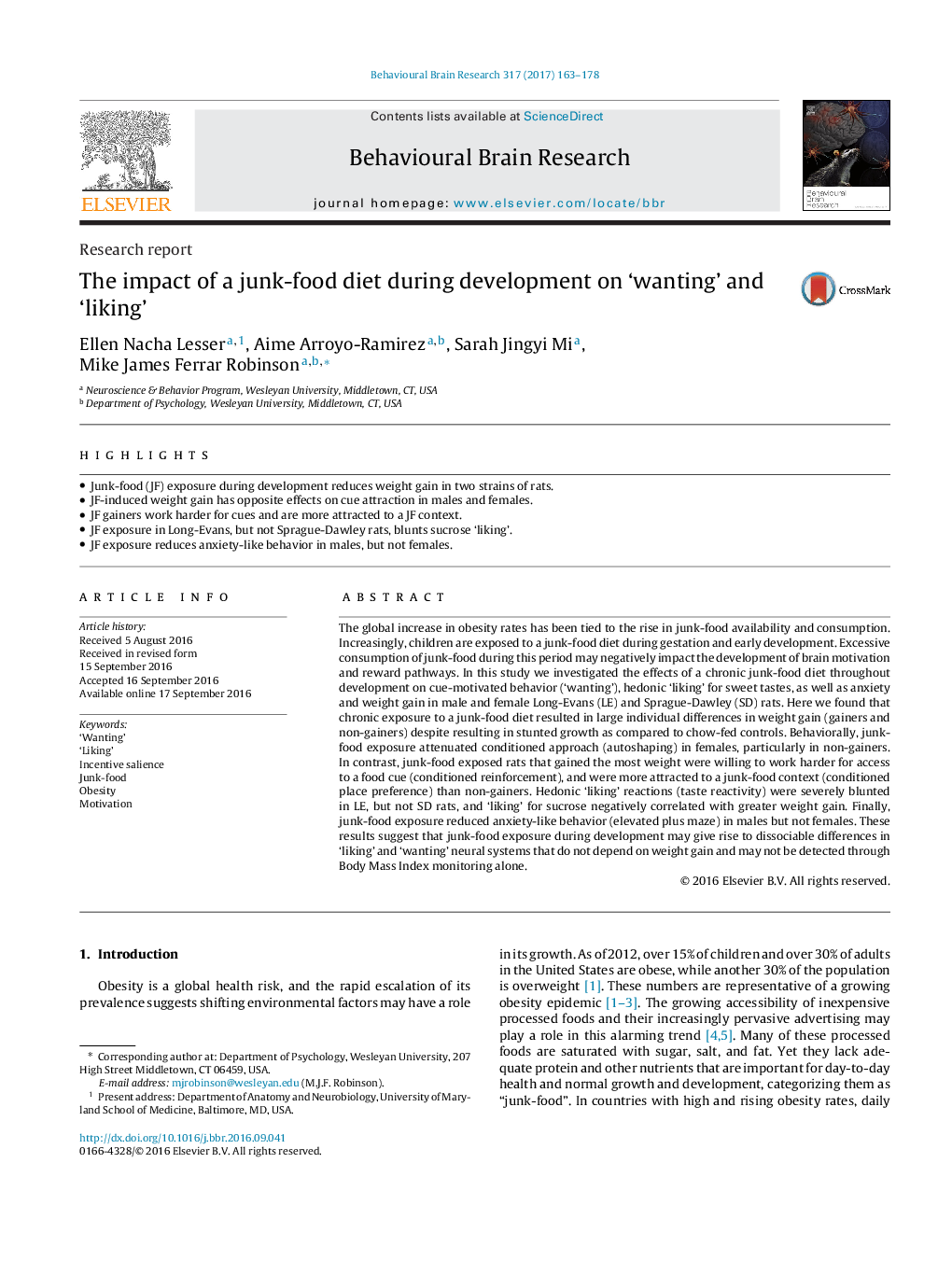| کد مقاله | کد نشریه | سال انتشار | مقاله انگلیسی | نسخه تمام متن |
|---|---|---|---|---|
| 4311958 | 1612916 | 2017 | 16 صفحه PDF | دانلود رایگان |
• Junk-food (JF) exposure during development reduces weight gain in two strains of rats.
• JF-induced weight gain has opposite effects on cue attraction in males and females.
• JF gainers work harder for cues and are more attracted to a JF context.
• JF exposure in Long-Evans, but not Sprague-Dawley rats, blunts sucrose ‘liking’.
• JF exposure reduces anxiety-like behavior in males, but not females.
The global increase in obesity rates has been tied to the rise in junk-food availability and consumption. Increasingly, children are exposed to a junk-food diet during gestation and early development. Excessive consumption of junk-food during this period may negatively impact the development of brain motivation and reward pathways. In this study we investigated the effects of a chronic junk-food diet throughout development on cue-motivated behavior (‘wanting’), hedonic ‘liking’ for sweet tastes, as well as anxiety and weight gain in male and female Long-Evans (LE) and Sprague-Dawley (SD) rats. Here we found that chronic exposure to a junk-food diet resulted in large individual differences in weight gain (gainers and non-gainers) despite resulting in stunted growth as compared to chow-fed controls. Behaviorally, junk-food exposure attenuated conditioned approach (autoshaping) in females, particularly in non-gainers. In contrast, junk-food exposed rats that gained the most weight were willing to work harder for access to a food cue (conditioned reinforcement), and were more attracted to a junk-food context (conditioned place preference) than non-gainers. Hedonic ‘liking’ reactions (taste reactivity) were severely blunted in LE, but not SD rats, and ‘liking’ for sucrose negatively correlated with greater weight gain. Finally, junk-food exposure reduced anxiety-like behavior (elevated plus maze) in males but not females. These results suggest that junk-food exposure during development may give rise to dissociable differences in ‘liking’ and ‘wanting’ neural systems that do not depend on weight gain and may not be detected through Body Mass Index monitoring alone.
Journal: Behavioural Brain Research SreeTestContent1 - Volume 317, 15 January 2017, Pages 163–178
